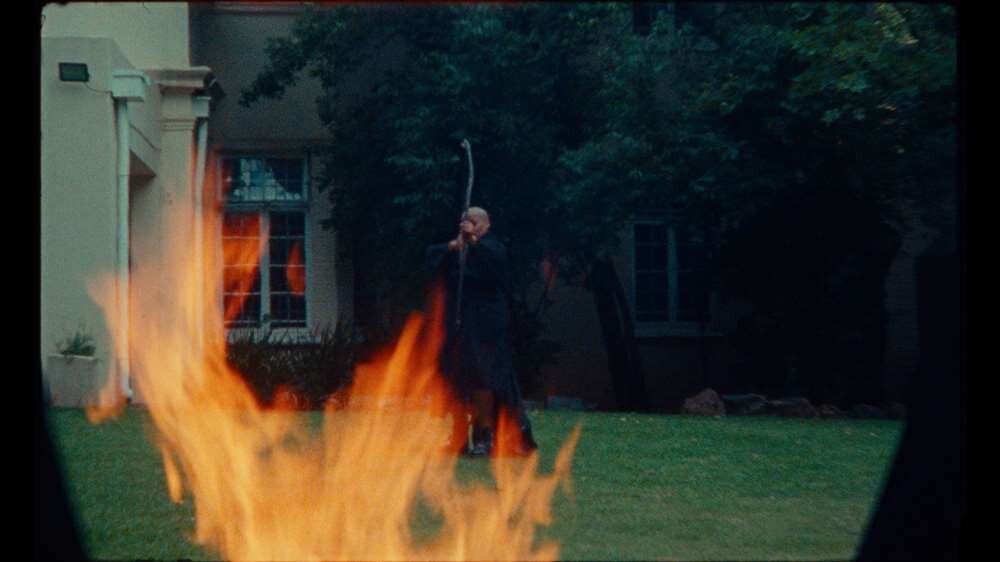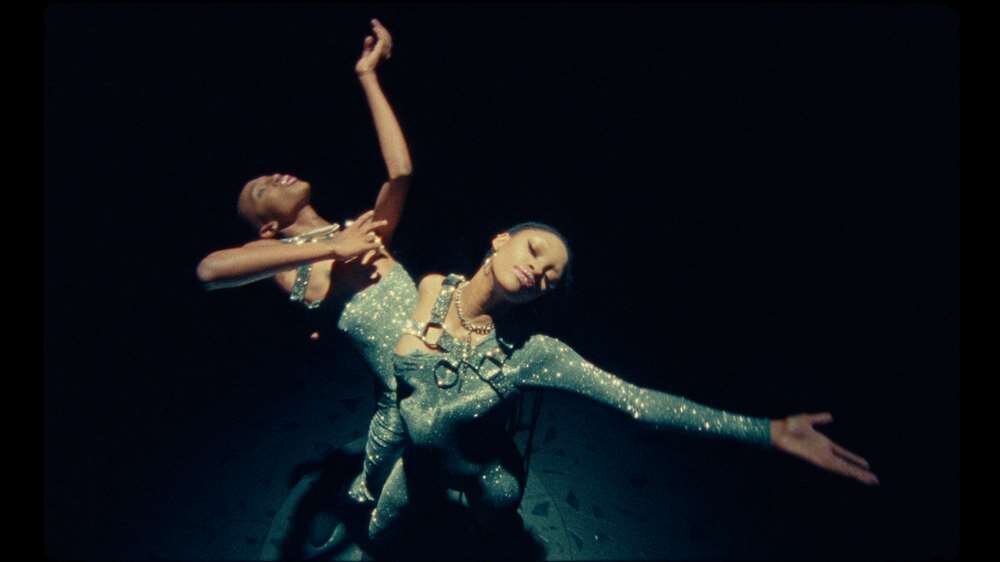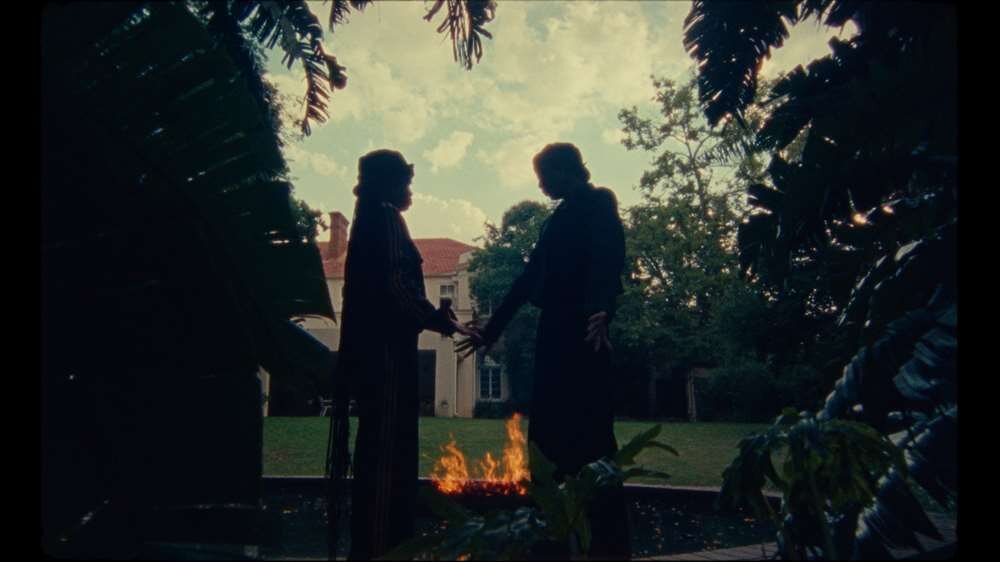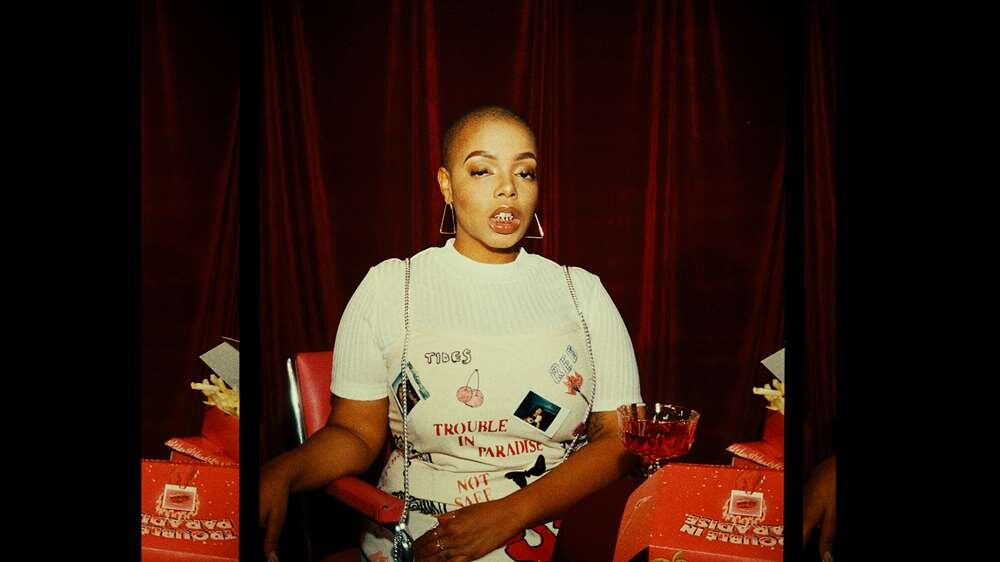Singer Shekhinah and director Monde Gumede discuss their collaboration Fixate Short Film
Written, performed and narrated by Shekhinah, Fixate Short Film is a meditation on the transient nature of sentiments of self-worth. How does one navigate finding your truth with the shifting perceptions of self? “The story of Fixate is about tuning into who you are and fixating on yourself, after coming from a place where you weren’t giving yourself much needed attention,” the South African artist says of the music video.
At the same time the song, featuring the budding Kenyan rapper Bey T, is symbolic of how desires we project onto others can be indicative of self-inflicted wounds. “I started writing ‘Fixate’ for someone else; trying to convince them that I was on their team, but realised I’d been writing these songs to myself. It brought me closer to the idea that what I criticise in others can be a sign of my own dissatisfaction with myself,” the songwriter continues.
The visual, directed by award-winning filmmaker Monde Gumede who works with the international collective one.fiction, uses fire, flower, songbook page, archery and tennis as motifs to explore narratives around reflection, resilience and nostalgia. “This film was a highly collaborative effort. I worked closely with the director who helped me better understand the emotions I was trying to convey through the music,” she explains.
Shekhinah’s story-driven songwriting is what makes turning her music into visual concepts a natural progression. This track is taken from her latest album Trouble In Paradise, a touching body of work that was made during lockdown. Working through this time of stillness and anguish gave Shekhinah the space to readjust her point of view on love and relationships; offering her explorations through the album. “I think it’s important for artists to produce works that are truthful reflections of themselves; that’s what audiences resonate with,” Shekhinah adds.
Trouble in Paradise is Shekhinah’s sophomore project that she’s come to release after having taken a short hiatus from music. Her growth is reflected in her new sound; while she’s kept it as experimental and genre bending as it’s always been, she is now exploring a more low-fi sonic approach in her lower register. This allows her lyricism and subject matter to stand out even more and has been elated received by fans.
The platinum-selling artist has never disappointed. Born in Durban, she first found notoriety on MNET’s SA Idols talent search and her debut album, 2018’s Rosegold won three South African Music Awards, two AFRIMMA awards and an MTV EMA nomination for Best African Act. The following year she established Rosefest, a festival supporting women artists in SA. And now with her new album continues to establish her as an influential figure.
“The album is extremely conceptual and flush with rich cues and nuances that live in a cinematic universe”
“The album is extremely conceptual and flush with rich cues and nuances that live in a cinematic universe. We wanted the film to follow that lead, and for our concept to only punctuate the sharpness of her vision,” Gumede explains of their collaborative process. As such, Shekhinah opted for stripped back fashion styling. “I tried to embody the vulnerability I express in the album through my clean look,” the singer says. This presented an interesting challenge to Gumede to begin at the source. “Since the perspective of Shekhinah’s writing feels auto-biographical, our goal was to find literal cues to illustrate her journey. The hope was that viewers might value feeling the film rather than just comprehending the storyline,” the director says.
As accessible as the film feels, creating it was a technical feat. In our conversation, the director explains that it was shot on 16 mm film, which meant it took more finesse and longer post production hours to get the desired outcome. Gumede namechecks Company 3, one.fiction and The Rudeboy Collective as partners who helped make the magic happen. The same goes for supporting cast members Tamara Moeng, Nkuley Masemola, Bandile Koketso Mbuli and Barbie Jackson and wardrobe stylist Lethabo Boogy Maboi. “Everyone brought their A-game and was so brave and generous with their spirit. They trusted that we’d take their commitment seriously,” Gumede says, adding: “Music films reflect the times far better than almost anything out there today. The fear that they will fly over audiences’ heads is reductive and disrupts how artists could elevate their craft.”








